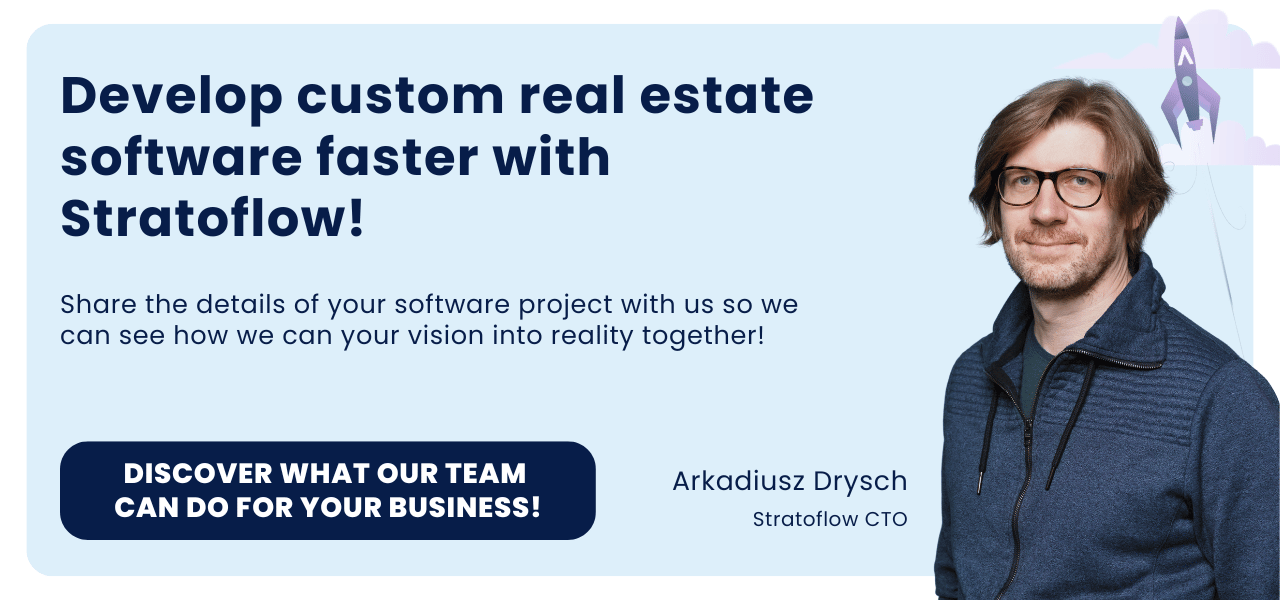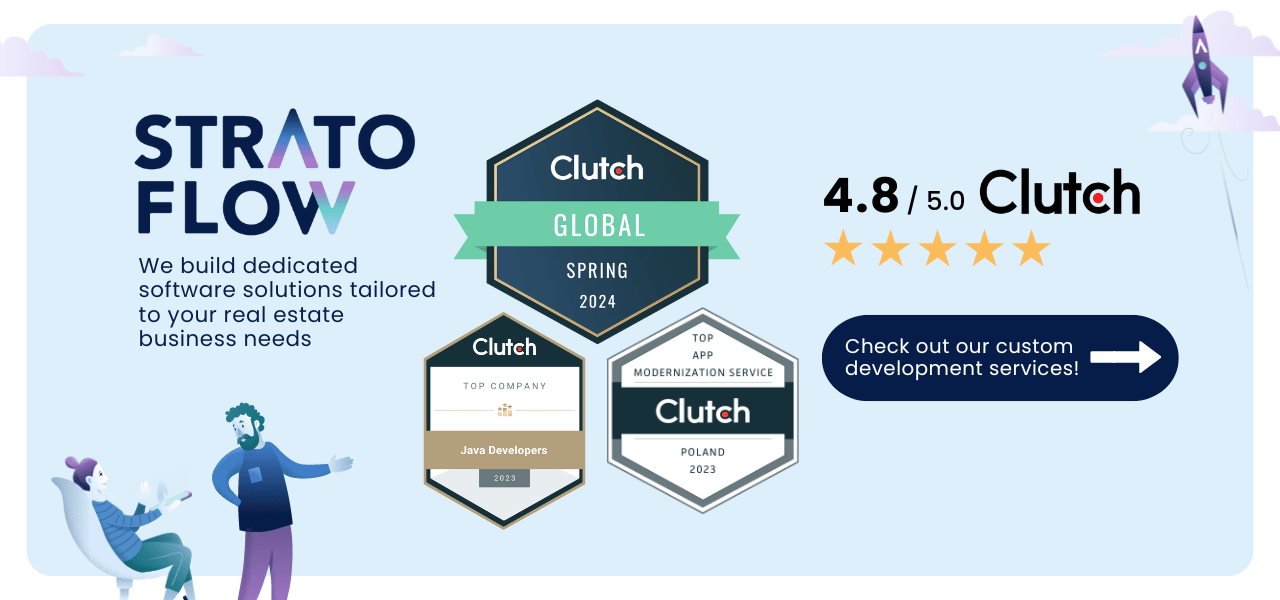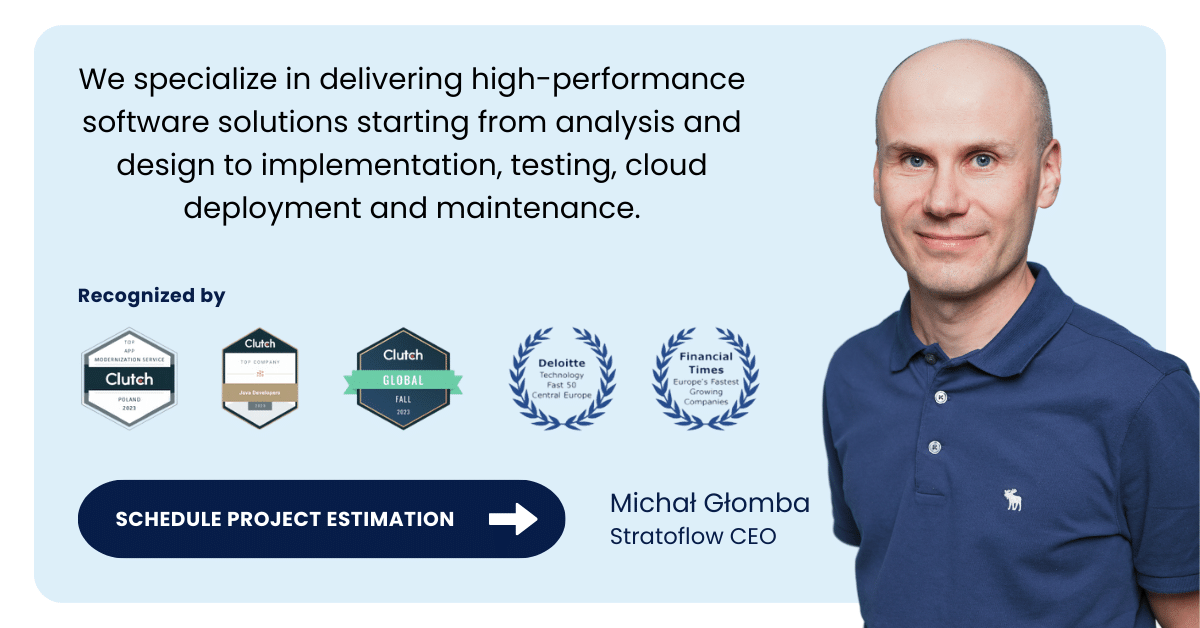
Future of Real Estate: Space as a Service Model
What if there was a way to quickly and efficiently change and scale the leases in our businesses?
The concept of “Space as a Service” (SPaaS) is transforming the traditional approach to renting by making real estate flexible, digital, and user-centric.
As we look to the future, this innovative model promises not just spaces to occupy, but environments that actively enhance the way we live and work.
Join us as we dive into the SPaaS revolution and explore the technological integrations, emerging trends, and economic implications that are shaping the future of real estate.
What is Space as a Service Business Model?
The Space as a Service (SPaaS) business model in real estate is an innovative approach that responds to the evolving needs of today’s tenants and real estate users.
It revolves around offering fully serviced, flexible space that meets the preferences of a diverse clientele, from start-ups and freelancers to large corporations seeking adaptable work environments.
This model is not just about renting physical office spaces; it includes a variety of services and amenities such as IT support, maintenance and community management, facilitated through digital platforms to enhance user experience and operational efficiency.
The global real estate market has seen a significant shift towards SPaaS due to the increased demand for flexibility and on-demand services.
In the commercial sector, traditional ownership and rigid leases are giving way to more fluid arrangements that allow businesses to scale more dynamically.
Companies are no longer locked into long-term leases, giving them the freedom to adapt to changing market conditions and workforce needs.
This shift is underscored by a growing preference for managed and serviced office solutions, which saw a surge in demand following the pandemic as companies sought more resilient and adaptable workspace solutions.
Operating in the Space-as-a-Service business model within the real estate industry not only demands flexible and adaptable physical spaces but also relies heavily on modern software to manage and optimize these environments.
Discover how our innovative solutions can propel your business to new heights.
Real Estate Software Development Services
SPaaS Value to Tenants: Flexibility and Scalability
Let’s take a step back, though and consider what value does the SPaaS offer to the tenants themselves. Why do regular people might want to consider this approach?
Tenants benefit greatly from the SPaaS model because of its inherent flexibility.
Traditional leases often lock companies into long-term commitments that do not account for the ups and downs of the economy or business growth.
With SPaaS, however, companies can lease space on more flexible terms and scale up or down as needed. This is especially beneficial for startups and dynamic companies that experience fluctuating growth rates and need to quickly adapt to changing staff sizes or project requirements.
SPaaS Value to Providers: Steady Revenue Stream
From the provider’s perspective, SPaaS offers a steady revenue stream.
Flexible leases, while more short-term, can command higher rates per square foot due to the additional services provided.
In addition, high tenant turnover is mitigated by a potentially larger customer base of smaller, more flexible tenants, as opposed to relying on a few large tenants.
Providers can also maximize utilization of their property by offering different space configurations and shared services that attract a broader range of tenants.
The growing demand for flexible co-working space, accelerated by post-pandemic changes in work habits, means that properties can maintain higher occupancy rates.
Space-as-a-Service in the Commercial Real Estate Industry
Let’s take a deeper dive into how Space as a Service (SPaaS) is shaking up the commercial real estate world.
This model is all about flexibility and customized services, and it’s quickly becoming a game-changer in how companies approach their office space needs.
Commercial sPaaS Real Estate Business Model
SPaaS flips the traditional real estate script by offering space that businesses can use on flexible terms.
Whether it’s a hot desk, storage space, private office, co-working space, or an entire floor, SPaaS providers create versatile environments that accommodate everyone from solo freelancers to large corporations.
One of the great benefits of SPaaS is that it’s not just about renting space. Tenants get a full package of services that can include everything from IT support to security to cleaning.
That means less time worrying about the logistics of office management and more time focusing on what’s important: your business.
How it Works in Action
So how does this work in practice?
One practical example of SPaaS in the commercial real estate industry is WeWork.
Known for its coworking space, WeWork – a popular proptech company – offers flexible office solutions and coworking spaces that meet the needs of modern businesses by providing short-term leases, physical space, fully furnished offices, high-speed internet, daily cleaning, and other office management services.
Businesses interested in WeWork’s offerings can easily explore various workspace options through their website. The platform allows users to view different locations, amenities, configurations and pricing structures, providing a comprehensive overview without the need to physically visit each location.
Once a suitable space is identified, prospective tenants can schedule a tour to view the facilities firsthand, allowing them to ask detailed questions and assess the suitability of the environment for their operations.
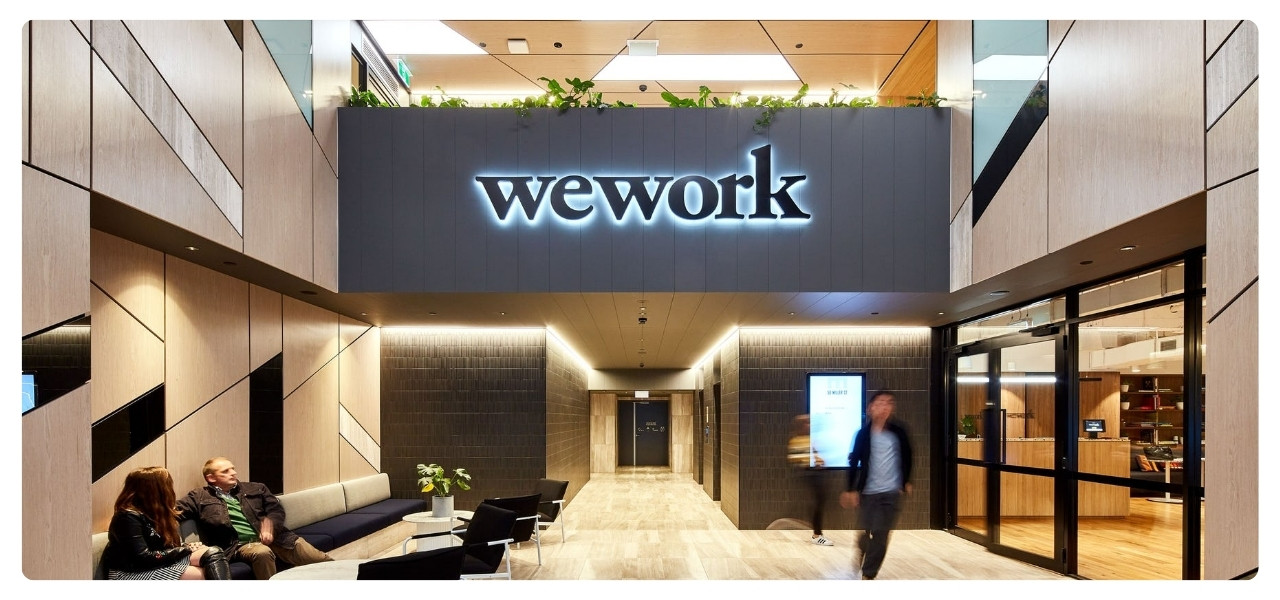
After the tour, if the company decides to move forward, the team works closely with them to customize the space to meet specific business needs, including layout, furnishings and design elements that align with the company’s brand.
The flexibility of leases is a major benefit of this model.
WeWork offers terms that can range from just a few months to several years, giving companies the ability to scale up or down the existing infrastructure as their needs change, without the long-term constraints typical of traditional leases.
Few Grain of Salt
WeWork is currently facing significant financial and operational challenges.
The real estate tech company has entered Chapter 11 bankruptcy protection, which includes restructuring its debt and renegotiating leases to improve its financial position and operations.
Financially, WeWork has experienced a difficult period with significant financial losses, increased member churn and urgent cash needs.
These challenges necessitated a 40-for-1 reverse stock split to maintain its listing on the New York Stock Exchange, underscoring the company’s efforts to stabilize its financial position, investor relations and business operations.
But does this mean that sPaaS business models are fundamentally flawed and doomed to fail?
Not at all.
Despite WeWork’s financial and operational challenges, the “space as a service” business model itself still has significant potential.
However, WeWork’s struggles are largely due to factors outside the inherent potential of its business model.
These include management decisions, poor CEO performance, risky ventures, rapid and uncontrolled expansion, and high operating costs relative to revenues.
Despite this particular case, the concept of providing flexible, technology-enabled workspaces is increasingly relevant, especially as companies seek more adaptable working conditions post-pandemic.
[Read also: Your Guide to Property Management Software Development]
Space-as-a-Service in Residential Real Estate
The concept of Space as a Service (SPaaS) is making fascinating inroads into the residential real estate sector.
Although relatively new compared to its commercial counterpart, residential SPaaS holds significant potential, especially in light of changing work and lifestyle patterns influenced by the pandemic.
The rise of remote working has changed not only where people work, but also how they perceive and use their living spaces.
Residential SPaaS typically involves offering fully serviced living arrangements that meet the needs of modern tenants who value flexibility, convenience and amenities.
These can range from furnished apartments with flexible lease terms to co-living spaces that offer shared amenities such as lounges, coworking areas, and fitness centers.
The model is particularly appealing to digital nomads, remote workers, and frequent travelers who prefer not to be tied down by traditional long-term leases and appreciate the ease of moving into a turnkey space.

This model benefits residents by providing a lifestyle that supports work-from-home and travel flexibility, which can improve their well-being and work-life balance.
For landlords and developers, SPaaS in residential real estate can lead to higher occupancy rates and the ability to charge a premium for additional services and flexibility.
[Read also: A Comprehensive Guide to Digital Transformation in Real Estate]
Key Software Solutions in the Space as a Service Real Estate Business Model
Property Management System
First and foremost, a solid property management system (PMS) is essential for SPaaS providers.
This software centralizes all aspects of property management, from tenant screening and lease administration to maintenance requests and financial accounting.
By automating these processes, a PMS increases the efficiency of property operations, reduces the likelihood of human error, and provides a scalable solution for managing multiple properties or units.
For companies in the SPaaS industry, a robust PMS can significantly improve operational workflow, enabling them to manage their portfolios more effectively and respond more quickly to tenant needs.
This efficiency is key to maintaining high levels of tenant satisfaction and occupancy, which are critical metrics for success in the SPaaS model.
Openkoda Property Management Software is emerging as a top contender in the real estate industry, particularly valued for its advanced real estate AI capabilities and comprehensive toolset designed to enhance the management of rental properties.

This open source real estate software platform integrates a variety of features that streamline property management operations through sophisticated artificial intelligence.
One of Openkoda’s standout features is its AI-driven automated document generation, which simplifies paperwork by automatically generating essential documents such as leases, invoices, and receipts.
This not only ensures speed and accuracy, but also reduces the manual effort involved in document management, which can be a significant time saver for property managers.
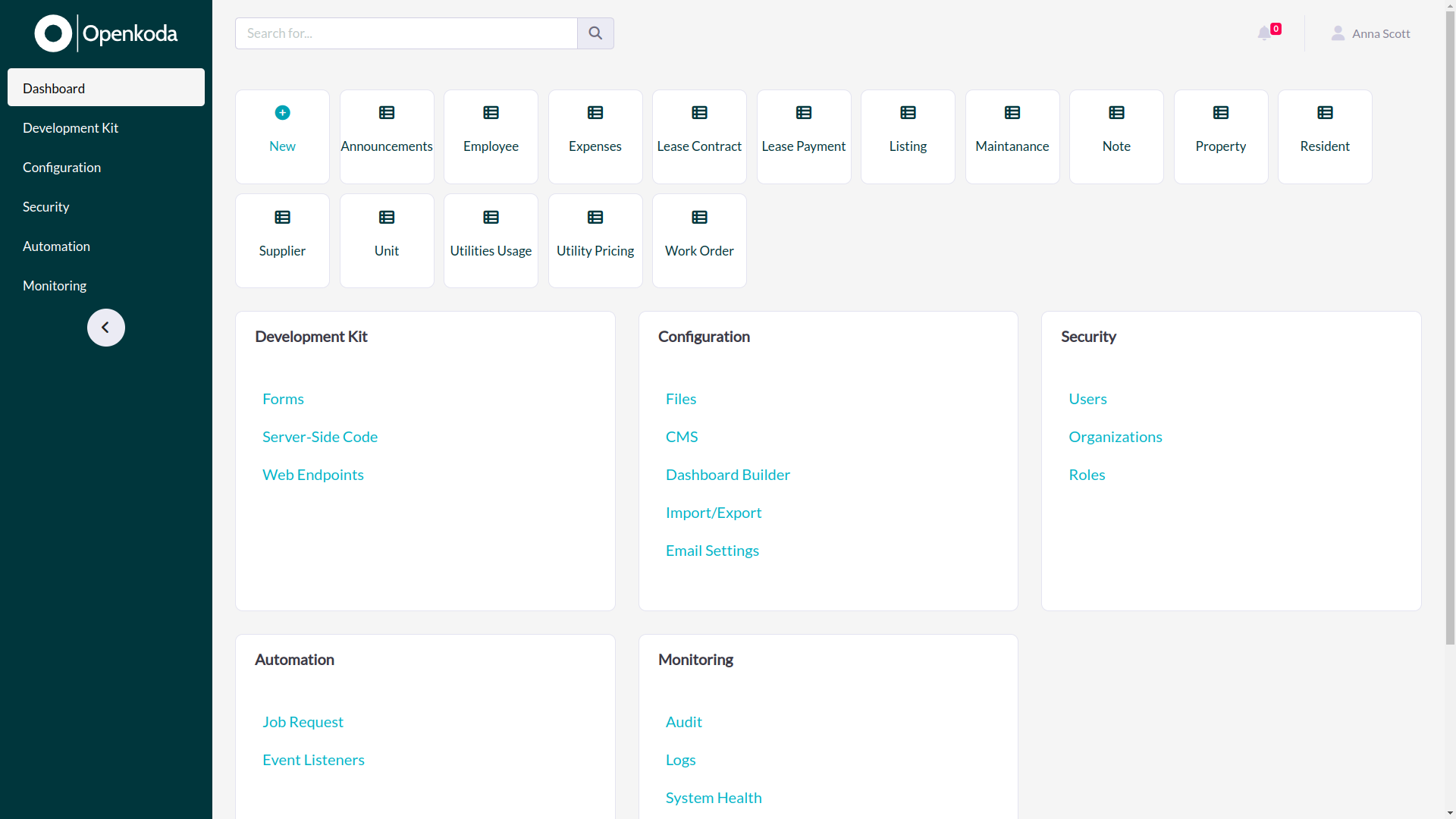
Key features of Openkoda Property Management Software include:
- Tenant Screening: Offers a detailed tenant screening process that includes a predefined questionnaire to gather essential information about prospective tenants.
- Custom Dashboard: Provides real-time updates on rent payment statuses and includes smart reminders and an AI-powered email system to ensure timely collections.
- Maintenance Management Tool: Allows for efficient tracking and management of maintenance requests, ensuring that property managers receive and address issues effectively without redundancy.
- Lease Generator & E-Signature: Facilitates easy sending of leases and captures e-signatures, streamlining the lease agreement process.
- Price Recommendation Tool: Utilizes AI and machine learning to analyze market data and suggest competitive rental prices.
But that’s just the beginning!
Thanks to the open source rapid development platform on which it is built, the Openkoda property management system can be easily and efficiently extended with additional features and functionality.
This flexibility ensures that companies can adapt the software to their unique workflows, integrate new functionality or enhance existing features as their business needs evolve.
Most importantly, all of this can be achieved at a fraction of the cost of traditional custom software development!
According to recent estimates, development using Openkoda Template can reduce development time and costs by 65%.
For robust property management systems, this equates to thousands of dollars in savings and deployment accelerated by months!
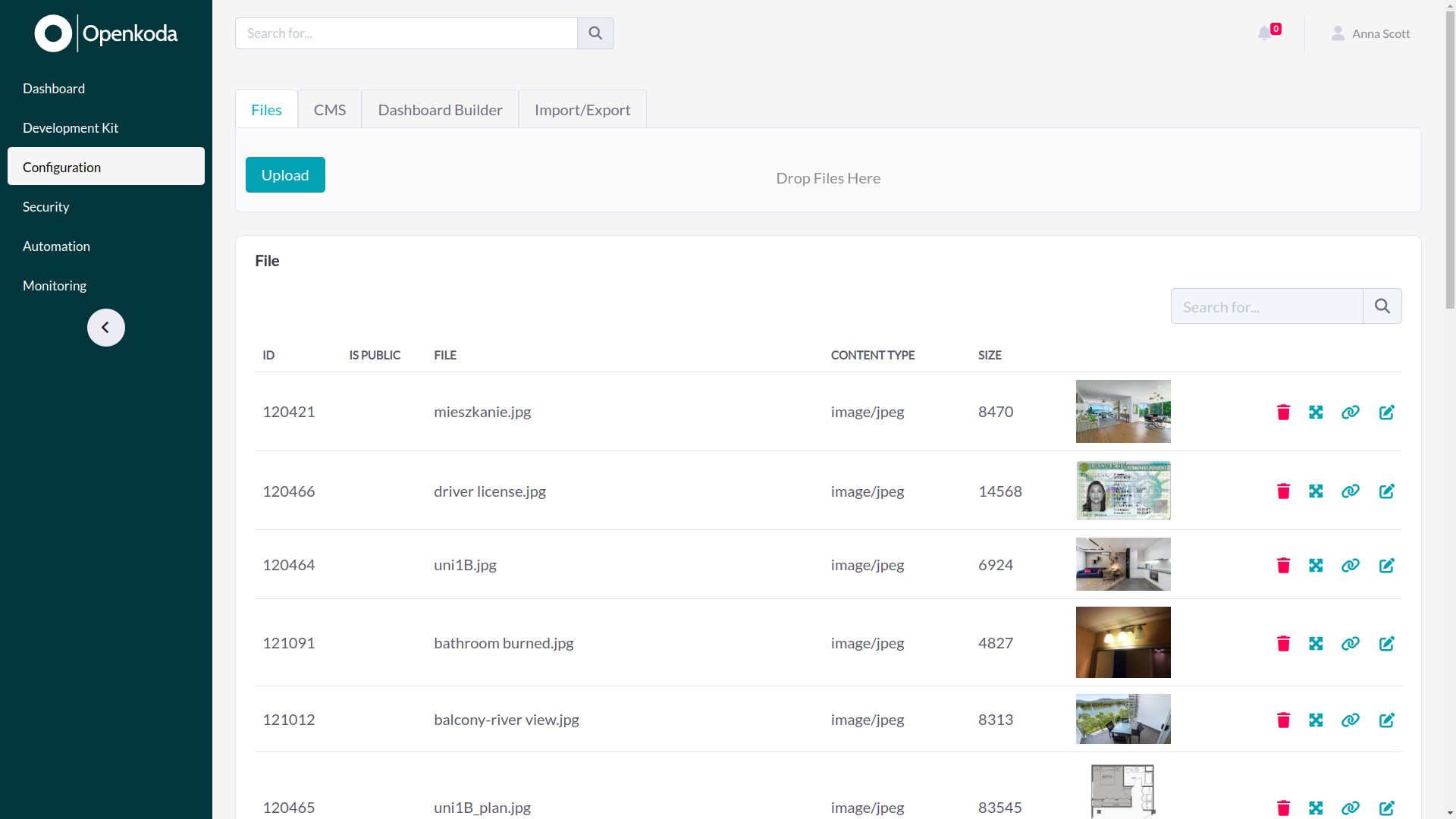
Openkoda Property Management Software is a powerful tool for real estate professionals, bringing a high level of automation and efficiency to property management.
Its robust AI features and comprehensive functionality make it a smart choice for improving operational workflows and tenant relations in the SPaaS business model.
Openkoda is a ready-made real estate tool available today! Do you want to see its capabilities in action?
Schedule your own free demo today!
Property Listing Search Engine
Another essential software solution for Space-as-a-Service real estate companies is a property listing search engine.
This tool helps prospective tenants find suitable SPaaS offerings by allowing them to search and compare different properties based on location, price, amenities, and lease terms.
For SPaaS providers, a well-optimized search engine not only increases the visibility of their properties, but also improves the match between available space and tenant needs, resulting in higher conversion rates.
In addition, these platforms can incorporate advanced algorithms to provide personalized recommendations based on user preferences and browsing history, further enhancing the user experience and increasing the likelihood of a lease being signed.
Most importantly, the performance of these property listing search engines is critical.
To achieve this, it’s beneficial to build a custom search engine on a scalable and high-performance architecture.
Custom search engines can be tailored to the unique needs of your SPaaS business, allowing it to better handle large amounts of data and provide the fast, accurate results that are essential for real estate listings.
By partnering with experienced custom development companies like Stratoflow, you gain access to a team of professionals who specialize in building high-performance systems.
Our Stratoflow developers are known for building systems that can process large amounts of data and queries quickly and efficiently.
Our expertise in real estate software development services ensures that the search engine not only meets today’s needs but is also future-proof as your SPaaS business grows.
Our approach includes an iterative development process with short cycles and daily communication to ensure that every aspect of the project is aligned with the client’s needs and expectations.
Stratoflow developers focus on using advanced technologies and custom solutions to help create search engines that are fast, reliable, and tailored to specific real estate functionalities.
Enlist the help of programming professionals today!
Contact us to discuss how we can make your vision a reality!
Customer Relationship Management (CRM) Software
Finally, space-as-a-service real estate companies need robust customer relationship management (CRM)-an essential tool for maintaining tenant relationships and managing sales leads in the SPaaS model.
Real Estate CRM systems help SPaaS providers track all interactions with current and prospective tenants, from initial inquiries and tours to ongoing service requests and lease renewals.
This centralized database of tenant information enables real estate companies to provide personalized service, address concerns promptly, and effectively manage tenant communications.
By fostering better relationships through detailed insights and proactive engagement, CRM software plays a critical role in tenant retention and satisfaction, ultimately driving business growth and improving service quality within the SPaaS framework.
Each of these systems-property management, property search, and customer relationship management-offers significant value to real estate companies involved in SPaaS. By integrating these software solutions, providers can ensure smoother operations, superior tenant service, and a stronger competitive position in the real estate market.
[Read also: Best Real Estate ERP Software Solutions On The Market in 2024]
Case Studies and Examples
The Space as a Service (SPaaS) business model has been adopted by several companies beyond the well-known WeWork, which we covered earlier.
These examples highlight the diversity and potential of SPaaS in transforming real estate into more dynamic and flexible environments.
Industrious

Industrious offers a premium workplace platform that combines serviced offices with coworking spaces.
Their focus is on providing top-tier, hospitality-driven services that cater to both small startups and large corporations. Industrious partners with landlords to revitalize their properties and manage them as ongoing services rather than traditional leases, demonstrating a successful model of SPaaS that emphasizes quality and service.
Knotel

Another notable player is Knotel, which specializes in customizable workspaces for medium and large companies.
Unlike traditional coworking spaces, Knotel offers “Agile HQs” where everything from design to operations is tailored to the tenant’s brand and business needs. Knotel’s approach demonstrates how SPaaS can be adapted to provide customized solutions that reflect a company’s culture and operational needs.
Common

On the residential side, Common operates shared living spaces that offer residents convenience and community.
Common manages properties to include beautifully designed shared suites, cleaning services, and community events that cater to the lifestyle preferences of young professionals and remote workers.
Their co-living space model illustrates how the principles of SPaaS are expanding into the residential market, offering flexibility and enhanced services not available in traditional rentals.
[Read also: What is a Building Management System and Why You Need One?]
Future Outlook and Trends
The latest trends in the real estate industry, particularly for 2024, reflect a complex landscape shaped by recent economic shifts and evolving market demands.
Here are some of the key trends and statistics that are defining the sector:
Remote and hybrid work
For starters let’s cover the trends in the remote and hybrid work arrangements which are major trends fueling the space as a service business model for renting office space:
- The hybrid model of work is currently the most dominant, with 49% of global desk workers employing this flexible approach. About 14% of full-time employees now work entirely remotely.
- Remote work continues to be associated with high productivity, with 77% of working professionals believing they are more productive when working remotely compared to in a traditional office setting
- Younger generations like Gen Z and Millennials are more likely to prefer and adopt remote work arrangements due to the flexibility they offer in terms of work-life balance
Space as a service market
Let’s also take a quick look at the broader space as a service market and how it constantly evolves:
- The global SPaaS market was valued at $8.7 billion in 2021.
- It is projected to reach $14 billion by 2031, growing at a Compound Annual Growth Rate (CAGR) of 5.1% from 2022 to 2031 marking it a major proptech trend for the years to come.
- The demand for SPaaS is on the rise due to its flexibility and the value it provides in on-demand access to spaces.
Related Posts
- 10 Key Proptech Trends in 2024: How Technology is Changing The Real Estate Industry
- Emerging Real Estate Technology Trends to Shape the Industry in 2024
- How to Make a Calendar App: Step-by-Step Guide
- How to Build a Document Management System: Quick and Efficient Approach
- Best Real Estate CRM Software in 2025
Thank you for taking the time to read our blog post!
